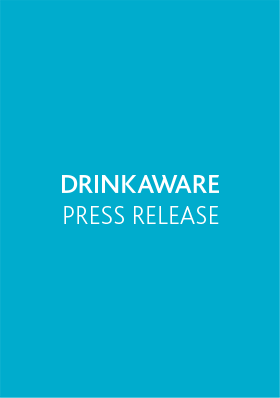Drinkaware the national charity working to prevent and reduce alcohol misuse in Ireland is encouraging those who took part in ‘Dry January’ to take learnings from their experience.
Many people will have taken part in challenges such as Dry January in the past and then gone back to their previous behaviours once the clock struck 12:01am on February 1st. If this rings a bell, Drinkaware is here to support you in continuing your new healthy habits past January 31st and creating a healthier relationship with alcohol.
The Drinkaware annual Barometer survey for 2021 found that 30% of adult drinkers in Ireland would like to drink less alcohol and 37% have already made small positive changes to their habits in the past 12 months. January is a time when many people will take stock of the year and decide to start new habits in the hopes that they will have a healthy, happier new year.
Challenges such as taking part in Dry January – where a person cuts out alcohol for the month of January can be a great kick start to creating new, healthier habits, which can last throughout the new year and beyond. But these new habits can be difficult to maintain, Drinkaware is encouraging people to take stock of the improvements they experienced through cutting down or out alcohol and take on 2022 with a more mindful approach to their drinking behaviours.
Drinkaware is providing some useful tips for people who want to continue 2022 with a more mindful approach to their drinking:
- Understand your drinking behaviour: Had you been drinking to excess before you started the challenge? The HSE advises no more than 11 standard drinks for women and no more than 17 standard drinks, spread out over the week with a least 2 alcohol free days. Common examples of a standard drink are, half a pint of beer, 100ml glass of wine and 35.5ml of spirits.
- Make a list of the positives: If you took part in Dry January, you may have noticed that you have been sleeping better, that your mental health, energy, and overall well-being has improved, your skin might look brighter, and you might have some extra money in your bank account. Consider all the positive changes you have experienced before you fall back into old habits.
- Consider your motivations: 61% of adult drinkers cite coping as a motivation for drinking (Drinkaware Barometer 2021). Spend some time thinking about why you drink alcohol and consider different coping strategies you could use in times of stress or difficulty. The Drinkaware Alcohol and Your Mental Health booklet can help, and you can order one on drinkaware.ie for free delivery straight to your door.
- Remember it doesn’t have to be an all or nothing: January is over, so even if you choose not to continue to abstain, it’s worth thinking about whether you were happy with the amount of alcohol you were drinking before you started the challenge, and to practice mindful drinking, making your mental health and well-being the priority.
CEO for Drinkaware Sheena Horgan commented: “There are so many benefits to cutting down or cutting out alcohol, and Dry January is about people experiencing those benefits firsthand. But sticking to new healthy habits can be a challenge. We all tend to prefer short-term but smaller rewards, rather than rewards that take longer to achieve. We are encouraging not only people who took part in Dry January but anyone who wants to change their habits in relation to alcohol to consider the benefits and to take a more mindful and considered approach to their drinking in 2022.
Our annual Barometer shows that many people use alcohol to help them cope and this can have unintended consequences on mental health and well-being – poor sleep, moods, low energy. As 2022 progresses and restrictions ease, we want to support people to take care of their wellbeing and to make positive changes in relation to alcohol. www.drinkaware.ie is a good place to start and where hundreds of thousands of people who visited the website last year found practical and non-judgmental tips to help them to better understand their drinking”.


